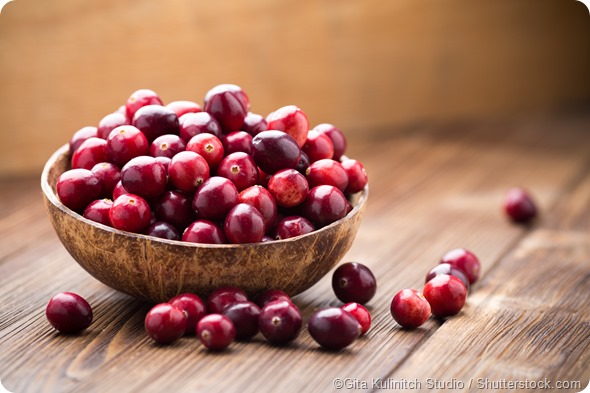A study conducted by Yale University has shown that cranberries do not reduce the incidence of urinary tract infections.
Urinary tract infection (UTI) is the presence of microbial pathogens within the kidneys, bladder or urethra and is considered to be the most common bacterial infection. Although the exact incidence is difficult to determine, it has been estimated that UTIs account for 1 million emergency department visits and 100,000 hospitalizations in the United States.

UTIs are more common in women than in men, affecting around half of women during their lifetime, and are particularly common among the elderly. They cause a persistent urge to urinate, discomfort on urination and abdominal pain; elderly patients often also become confused and agitated as a result of UTI.
Some women are particularly susceptible and experience frequent UTIs. A commonly used tactic to reduce the occurrence of UTIs is to take cranberry daily, either as juice or capsules.
It was thought that cranberry reduced the risk of UTI by making the urine more acidic and by preventing bacteria binding to cells lining the urinary tract. Decreases in urine levels of bacteria and white blood cells among individuals receiving cranberry juice have been reported by some researchers, but there were confounding factors. A systematic review of published data conducted in 2012 concluded that:
Cranberry juice cannot currently be recommended for the prevention of UTIs".
Researchers at Yale University decided to assess for themselves the effect of taking cranberry daily on the incidence of UTI. They recently conducted a randomized, double blind clinical trial in 185 elderly, non-catheterized women being cared for in nursing homes. These women received either cranberry capsules (equivalent to drinking 20 ounces of cranberry juice) or placebo capsules daily for a year.
At the end of the study, the presence of bacteria and white blood cells in urine samples did not differ between the two treatment groups (29.1% vs 29.0%; respectively). In addition, there were no significant differences in the occurrence of symptoms indicative of UTI, hospitalization rates or mortality.
Dr. Lindsay Nicolle of the University of Manitoba, Canada, commented "The continuing promotion of cranberry use to prevent recurrent UTI in the popular press or online advice seems inconsistent with the reality of repeated negative studies or positive studies compromised by methodological shortcomings".
Since the study used current restrictive definitions for identifying symptomatic infection, the researchers are confident that these findings are valid and meaningful. It thus appears that cranberry juice is not beneficial in reducing the risk of developing UTI and that the popular promotion of cranberry products to prevent recurrent UTI is not evidence-based. Although cranberry products may have other benefits, they should not be recommended for the prevention of UTI.
Yale associate professor Dr. Manisha Juthani-Mehta highlighted a couple of approaches that people may find more effective:
In terms of prevention, hydration is certainly important...The other factor in post-menopausal women is topical oestrogen therapy among women who had recurrent UTIs. It has shown some benefit."
With increasing antibiotic resistance, further research is necessary to identify other potential approaches for the management of recurrent UTI.
Sources:
- Juthani-Mehta M, Van Ness PH, Bianco L, et al. Effect of Cranberry Capsules on Bacteriuria Plus Pyuria Among Older Women in Nursing Homes: A Randomized Clinical Trial. JAMA 2016. Epub ahead of print 27 October 2016. Available at http://jamanetwork.com/journals/jama/fullarticle/2576822.
- Nicolle LE. Cranberry for Prevention of Urinary Tract Infection? Time to Move On. JAMA 2016. Epub ahead of print 27 October 2016. Available at http://jamanetwork.com/journals/jama/fullarticle/2576821